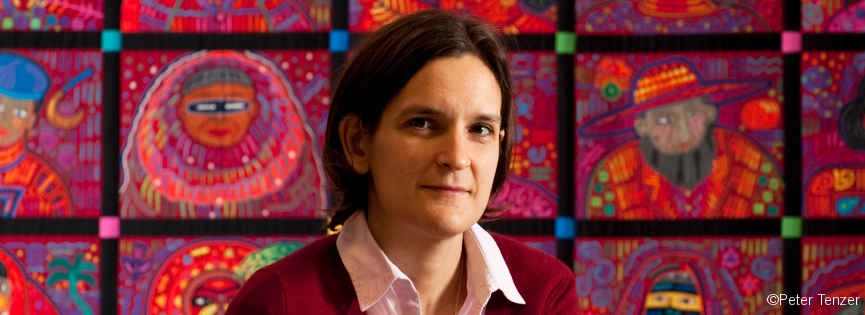Main content
Esther Duflo 2015 Princess of Asturias Award for Social Sciences

I am thrilled and honoured to receive this Award on my own behalf and on behalf of the members of the Abdul Latif Jameel Poverty Action Lab (or J-PAL, for short).
I wish to express my gratitude for this Award to all of you and to the people of Asturias. I consider this award as recognition of a long-term group effort whose work aims to change the lives of the poorest by contributing to improving the economic policies that affect them.
J-PAL is a network of researchers created in 2003 by Abhijit Banerjee, Sendhil Mullainathan and myself, which I currently co-head along with Rachel Glennerster, Abhijit Banerjee and Ben Olken. J-PAL currently encompasses more than 120 researchers worldwide.
What this network of researchers has accomplished, the structure that supports them and the hundreds of employees and partners who work with them could not have been brought about by any of its components individually and I like to think that the whole is greater than the sum of the parts.
The arrival of thousands of war refugees and economic migrants to Europe confronts us with a reality that we often prefer to ignore: whatever our difficulties, the hardships that others endure in countries that are not so far away as they might seem are much more urgent and much more serious. And in an enclosed world, we cannot afford to turn our backs on them.
Our ambition at J-PAL is to change the world; hardly a modest goal. We want to profoundly change the lives of the poor by providing policy makers with the means to invent and choose the most effective policies to help these people overcome their problems. Our approach is unpretentious and pragmatic. We believe that there is no miracle solution to the problem of poverty: neither foreign aid, nor the full opening of borders, nor international trade, nor the expansion of democracy nor the market economy will suffice to solve the problem.
There is no one to blame, nor a single group responsible for this situation: on their own, neither the United Nations nor local governments nor the elites are capable of keeping people poor or extricating them from poverty.
Poverty takes many forms and its persistence is due to multiple causes: being poor means having less information and being less likely to choose one’s own path, as well as having less protection against one’s own mistakes. All these barriers can become traps that keep the poor imprisoned. Understanding them, however, allows us to break them down through the use of well-chosen interventions.
At J-PAL, we strive to work on the ground with local partners to identify these barriers, better understand why the poor make the choices they do and help devise solutions to these problems. We then work with our partners to conduct rigorous experiments following the model of clinical trials. There have been many failures and some success stories, but each experiment teaches us more about the nature of poverty and helps us move forward and learn.
The problem of poverty will not be solved in the near future. But if we accept this fact, we have all the time ahead of us. If we agree to replace preconceptions with genuine reflection; to hear what the poor have to say; to submit every idea –even those that seem obvious– to rigorous testing, we can gradually build a toolbox of effective public policies and, perhaps, better understand the human condition as well.
Poverty has always been with us. But we can understand and end it.
Your Majesties,
Distinguished members of the Princess of Asturias Award Jury,
Allow me to express my gratitude once more for this distinction which confirms our conviction that a solution can be found and that we may well be on the right track. Your faith in us provides us with renewed strength that we will definitely use to the best advantage.
End of main content
